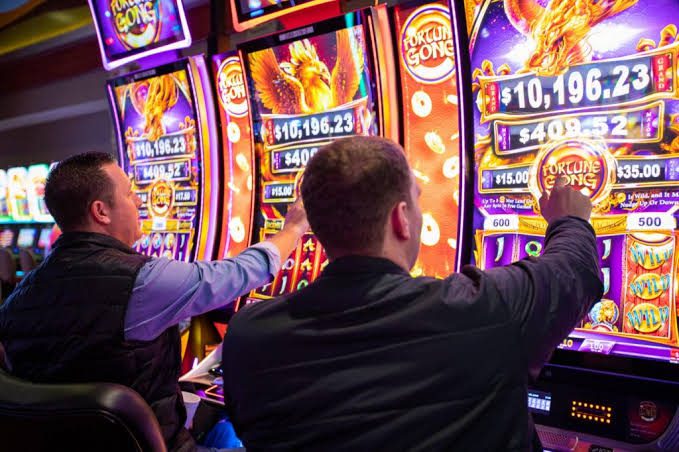Table of Contents
Skill vs. Luck in casinos are fascinating places where people gather to test their fortune and prowess. While some games rely heavily on chance, others require a significant degree of skill. Understanding the balance between skill and luck in various casino games can help players make informed decisions about where to place their bets and how to develop their strategies.

Games of Pure Luck
Many casino games are predominantly governed by luck. These games offer the thrill of unpredictability and the allure of potentially massive payouts with minimal player intervention. Here are some popular games of pure chance:
Slot Machines
Slot machines are the quintessential games of luck. Players insert their money, press a button, and hope for the best. The outcomes are determined by Random Number Generators (RNGs), ensuring that each spin is independent and entirely random. While there are strategies to manage one’s bankroll and select machines with higher payout percentages, the results ultimately come down to luck.
Roulette
Roulette is another game that epitomizes chance. Players place their bets on a number, color, or section of the wheel, and the croupier spins the wheel in one direction while sending a small ball in the opposite direction. Where the ball lands is a matter of pure luck. Though players can employ betting systems like the Martingale or Fibonacci, these strategies cannot influence the outcome, as each spin is independent.
Games Combining Skill and Luck
Some casino games blend elements of skill and luck, giving players the opportunity to influence the outcome through their decisions and strategies. Here are a few examples:
Blackjack
Blackjack is a card game that requires both luck and skill. While the cards dealt are random, players’ decisions significantly affect the game’s outcome. Strategies like card counting, basic strategy (deciding when to hit, stand, split, or double down), and understanding the odds can increase a player’s chances of winning. Skilled players can reduce the house edge to as low as 0.5%, making blackjack one of the most strategic games in the casino.
Poker
Poker is perhaps the most skill-intensive casino game. While the luck of the draw is a factor, a player’s skill in reading opponents, bluffing, and making strategic bets plays a crucial role in long-term success. Games like Texas Hold’em and Omaha require a deep understanding of probability, psychology, and game theory. In poker, the most skilled players can consistently outperform those relying solely on luck.
Games Where Luck Dominates
Even in games that combine skill and luck, there are instances where luck takes the upper hand. Understanding these nuances can help players adjust their expectations and strategies accordingly.
Craps
Craps is a fast-paced dice game that blends skill and luck. While players can control their bets and employ strategies like the Pass Line bet and the Odds bet to minimize the house edge, the roll of the dice is ultimately a matter of chance. Experienced players can improve their odds slightly by making smarter bets, but luck remains the dominant factor.
Baccarat
Baccarat is another game where luck prevails, although players can make informed decisions to influence their outcomes. Players bet on the player, banker, or a tie, and the outcome depends on the cards dealt. Strategies like tracking past outcomes and betting trends can provide some guidance, but the game’s random nature ensures that luck remains the primary determinant.
The Psychological Aspect of Skill vs. Luck
The interplay between Skill vs. Luck in casino games also impacts players’ psychology. Games of pure chance often attract casual players looking for entertainment and the thrill of unpredictability. In contrast, games requiring skill tend to attract more serious players who enjoy the challenge of mastering strategies and outwitting opponents.
The House Edge and Its Role
Understanding the house edge is crucial for any casino game, whether it relies on Skill vs. Luck, or a combination of both. The house edge represents the casino’s advantage over the player. In games of pure luck, the house edge is usually fixed and difficult to overcome. For example, the house edge for slot machines can range from 2% to 10%, depending on the machine and casino.
In skill-based games, players can reduce the house edge through strategic play. For instance, using basic strategy in blackjack can lower the house edge to around 0.5%. Similarly, skilled poker players can negate the house edge entirely by consistently winning against other players.
Conclusion
The role of Skill vs. Luck in casino games varies widely, offering something for every type of gambler. Understanding the balance between these elements can help players choose games that align with their preferences and strengths. While luck will always play a part in the excitement of casino gaming, skill can significantly enhance a player’s chances of success in games like blackjack and poker. Ultimately, whether a game is predominantly luck-based or skill-based, the key is to enjoy the experience and gamble responsibly.

